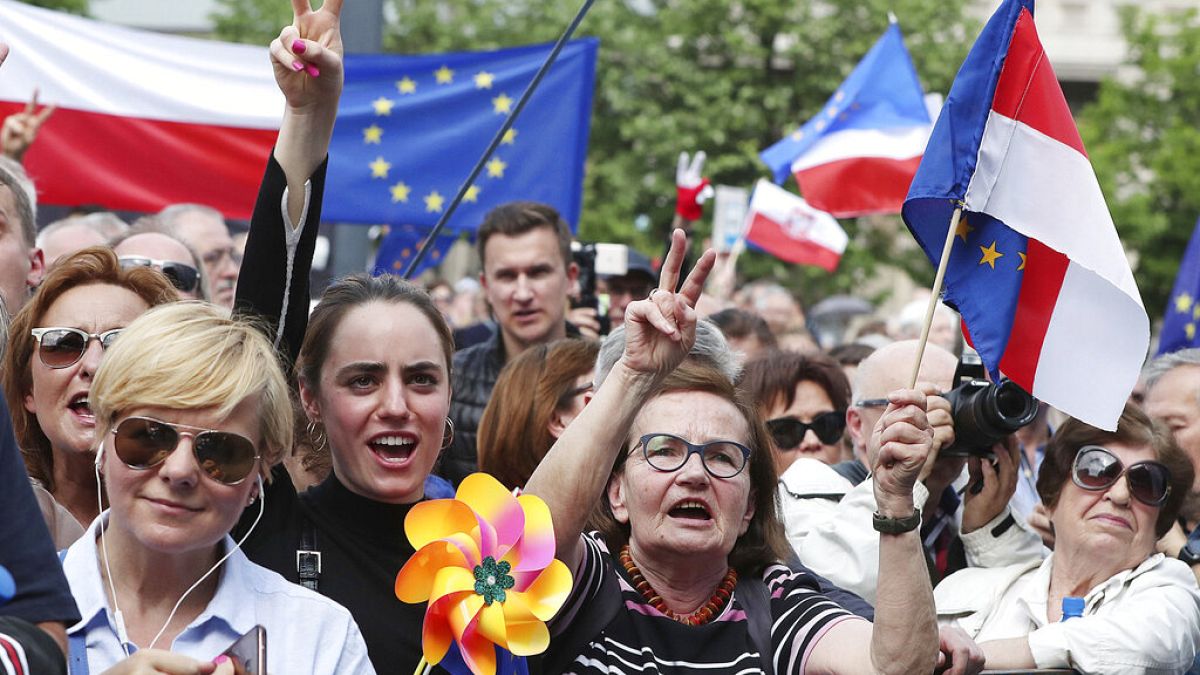According to the Euronews Super Poll, conservative forces in Poland are predicted to win the upcoming European elections. However, a deep rift between the right-wing Law and Justice (PiS) party and the moderate conservative Civic Coalition (KO) could hinder the creation of a larger EU conservative coalition. The Euronews Polls Centre predicts a close race between PiS and KO in the upcoming elections. Since March, PiS has gained support, surpassing KO in some voting intentions. Despite their shared values on topics such as defense and security, the two parties are unlikely to form a coalition due to deep-rooted political differences.
The political landscape in Poland is heavily conservative, with almost 80% of voters leaning towards conservative parties. However, the reality is that there is a deep division between the moderate and ultra-conservative forces in the country. Diverging visions on the EU’s principles, power games among leaders, and conflicting values have created tensions between PiS, KO, and Konfederacja. While these parties share common ground on issues such as patriotism, anti-Russian sentiment, and pro-US and pro-NATO views, they are unable to come together due to fundamental differences in their political values.
The rule of law has been a major point of contention between PiS and KO, with PiS challenging the independence of the judiciary and opposing EU policies on migration, women’s rights, and freedom of choice. Despite their opposition to some EU policies, both parties believe that Poland should remain a member state and benefit from EU funds. In terms of environmental issues, Poland’s ultra-conservatives are critical of the EU’s decarbonisation goals but still recognize the importance of renewable energy sources and the financial benefits of the EU’s Green Deal.
In previous national and local elections in Poland, the ultra-conservatives have received more votes than their moderate rivals. However, the centre-right party became the ruling force after last year’s national election due to the ultra-conservatives failing to form a coalition. Personal rivalry between leaders such as Donald Tusk and Jarosław Kaczyński, as well as disagreements on individual liberties, have been ongoing issues between their respective parties. Despite potential overlap on certain issues, the deep-seated political differences between PiS and KO make it unlikely for them to form a formal coalition.
Overall, despite the strong conservative presence in Poland, internal divisions within the conservative parties could hinder the formation of a larger EU conservative coalition. While both PiS and KO share common values on certain issues, fundamental differences on EU principles and power dynamics between leaders make collaboration unlikely. As Poland heads into the upcoming European elections, the future of the conservative coalition remains uncertain, with deep-rooted political tensions shaping the country’s political landscape.









